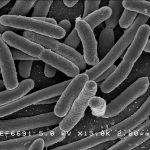Definition
noun, plural: inflammatory responses
(medicine) A response of the body to an injurious agent, characterized by cardinal signs such as:
Supplement
Inflammation is the end-result of these inflammatory responses comprised of various physiologic reactions occurring in the body in its response to an injurious agent (e.g. viruses, microbes, mechanical or chemical trauma, etc.). These reactions include proximal vasodilation while distal constriction of blood vessels, increased leukocytic migration and activity, seepage of plasma proteins, increased sensitivity to pain with the increased release of bradykinin, and other chemicals by specialized cells.
Word origin: Latin inflammatio, inflammare, (to set on fire)
See also:
- inflammation








